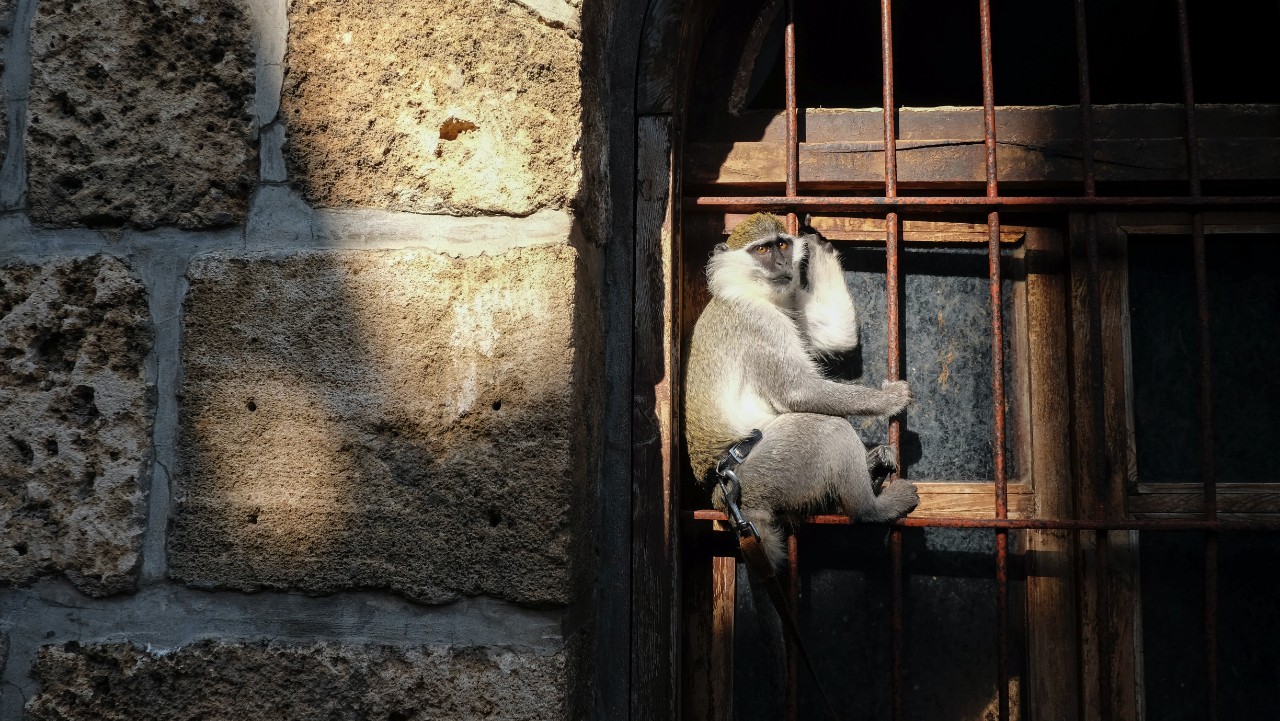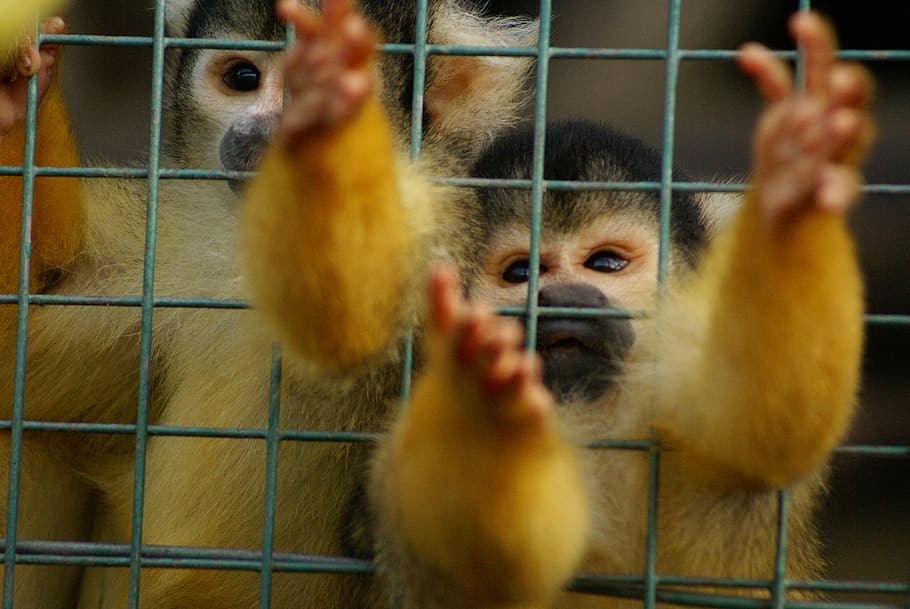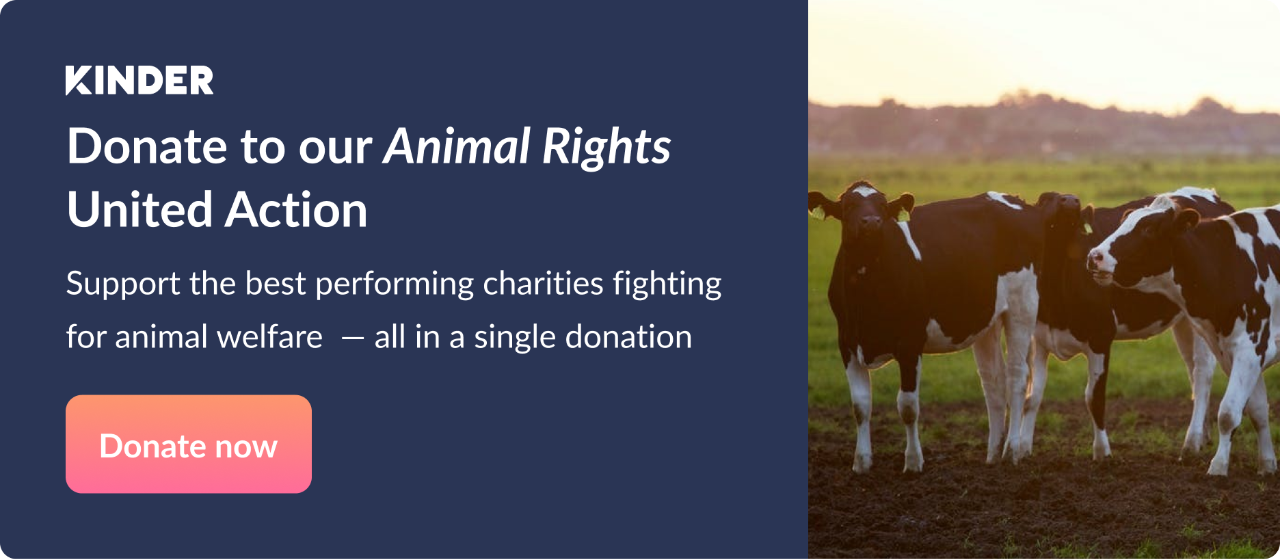The fourth largest illegal trade
Millions of exotic animals are being sold around the world each year — snatched from the wild, or bred in captivity. It’s become too easy to buy them online, from breeders, at auctions, or even at pet stores; chances are you may have spied a green iguana or bearded dragon.
Big cats, bears, and primates make up a large part of the illegal wildlife trade, but many die on the way to their final destination — or are in great distress throughout the journey. Most countries have few restrictions on exotic animal trafficking and ownership; so criminal networks easily profit from the deaths of many iconic species.
Wildlife trafficking has close ties to the drugs and weapons trade, making it the fourth largest illegal trade. It’s so lucrative in fact, that it’s estimated to be worth 20 billion USD a year. Why does it exist? High demand.

Impulse buying for the clout
People want exotic pets for all sorts of reasons; the status symbol, the pride in owning something unique, the godlike feeling of caring for a predator. None of these reasons prioritise what is best for the animal.
Recently, a slew of celebrities with exotic pets have made it seem acceptable to the outside world. Mike Tyson owned a tiger for 16 years, which he eventually had to give up when it ripped his neighbours arm off. Paris Hilton wanted to own a more interesting live accessory than her dogs, so she purchased a Kinkajou. Kinkajous are native to Central and South America and live in the trees of tropical rainforests. She had to give the pet up when it bit her — and sending her to the emergency room for a tetanus shot.
Most people greatly underestimate the work it takes to keep a wild pet. Not only are they expensive, it’s near impossible to replicate their natural habitat, no matter how hard a person tries. There are many factors necessary for a species to thrive; things like temperature, humidity, soil, seasonal cycles, being with its own kind, etc.
Social media has made it extremely easy to advertise exotic animals. Impulsive buyers often think a bear cub is something cute to own, without thinking it through. These platforms also make it easy to show-off pets, which leads to an increase in demand.
Regret and release
Unruliness is just one of the risks of exotic pet ownership. Animals can cause serious harm to their owner — or anyone around them. Many believe that they can be domesticated, especially if they are brought up from a young age, but this simply isn’t true.
When owners realise that they aren’t capable of keeping a wild animal, they abandon them, euthanise them, or release them into the wild. The best case scenario for these animals — although not ideal — is for them to be brought to a wildlife rescue centre. Between 2009 and 2019 the requests for animal rescue tripled.
Most animals released into the wild have never lived there. Having been raised by humans they simply don’t know how to care for themselves. This leads to death by starvation, exhaustion, predators, or poachers.

Help lower demand and take action
Animals suffering from the exotic wildlife trade need our help. When people stop buying them, they'll no longer be such an inviting trade for criminals. Sadly, people are most discouraged from owning an exotic animal when they discover the risk they pose to humans, rather than that it causes the animal to suffer.
We can urge our governments to take political action by sending an email to our local representatives, making a pledge, or signing petitions. Some countries in the EU — including Spain, Greece and The Netherlands — have adopted a positive list. This is a clear list of animals that are suitable as pets.
Many other countries adopt negative or black lists, which outline banned pets. Negative lists need constant updating, which makes it easier for new exotic species to slip through. A positive list eliminates the guesswork and makes sure trade strictly sells animals on the list, with no exceptions.
The illegal pet trade has long-flown under the radar — only with action and education can we make a change. There are many organisations tackling wildlife trade head on. One such organisation is Stichting AAP, who help rescue exotic animals and fight for better legislation in Europe. Don’t let them do it alone.
Would you like to donate to the best performing charities fighting for animals — in a single donation? Donate to our United Action for Animal Rights below and contribute to the most effective solutions at once.





